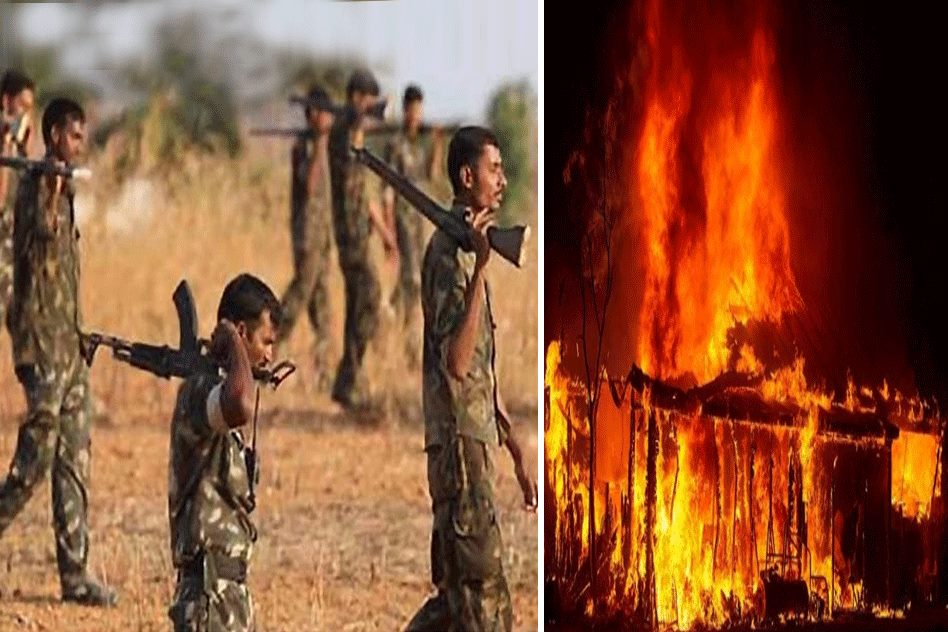
Not Naxal, It Was Security Forces Who Burnt 160 Homes In Chhattisgarh: CBI
27 Oct 2016 6:25 AM GMT
After five-and-a-half-years long probe, the CBI has finally concluded that 160 houses that were burnt in Tadmetla village of Chhattisgarh in March 2011, is a work of the security forces and not Naxalites as claimed by state’s police.
The CBI presented the report on its investigation, informing a bench headed by Justice Madan B Lokur that “160 houses in village Tadmetla were completely burnt during the police operation.”
Eight special police officers (SPOs) have been charge sheeted by CBI.
The CBI has also charge sheeted 26 members from the controversial civil vigilante group, Salwa Judum, for an attack on the convoy of Swami Agnivesh two weeks after the incident, when he was trying to reach the villages to provide relief.
What is Salwa Judum?
Salwa Judum (meaning “Peace March” or “Purification Hunt” in Gondi language) is a militia mobilised and deployed as part of anti-insurgency operations by the government in Chhattisgarh, India, aimed at countering Naxalite violence in the region. The militia, consisting of local tribal youth, received support and training from the Chhattisgarh state government.
On 5 July 2011, the Supreme Court of India declared the militia to be illegal and unconstitutional and ordered its disbanding. Members who were part of Salwa Judum were allegedly given full impunity by the state government. They were allegedly found to be involved in a no. of rape cases but no action/FIR was done.
The Supreme Court declared Salwa Judum and SPOs illegal in a batch of cases led by Nandini Sundar, who is a professor of sociology at Delhi University and a co-petitioner in an ongoing PIL in the Supreme Court against the Chhattisgarh government.
In the operations that took place between March 11-16 in three villages of Morpalli, Tadmetala and Timmapuram, more than 250 homes were set ablaze, three men were killed and three women were raped, Sundar argues.
The CBI inquiry which was ordered by the court in July 2011 found out that “out of 207 villages, 160 houses in Tadmetla were completely burnt during a police operation.” According to the report, villagers have said to been witness to ex-SPOs and now police constables Madkam Bheema, Vanjam Deva, Telam Nanda and Telam Kosha and others “beat/torture villagers and set their houses on fire.
Impunity enjoyed by SPO over the years
According to The Indian Express, the SPOs have been charged under Section 326 (voluntarily causing grievous hurt by dangerous weapons or means), and Section 436 (mischief by fire or explosive substance). The report added that further investigations in respect of remaining offences or accused persons will continue.
A press release issued by Nandini Sundar and Swami Agnivesh said that while the cases of rape and murder were still under investigation, the CBI enquiry has exposed the police lie that the houses were burnt by the Naxalites and, instead, shows that these unlawful activities were carried out by the SPOs/police/CRPF.
A vicious cycle
Such incidents where the police act with impunity and take law in hand don’t solve the Naxal crisis. On the contrary, innocent people who are killed and persecuted create a vacuum that force young people to take arms against the state. It is the duty of the government to deal with such crisis in a diligent way, regular dialogues with the concerned community and its people can be more fruitful than deploying forceful measures. In many such cases of police brutality, the prolonged judicial process makes the victims lose hope in Indian judiciary as well.
 All section
All section













